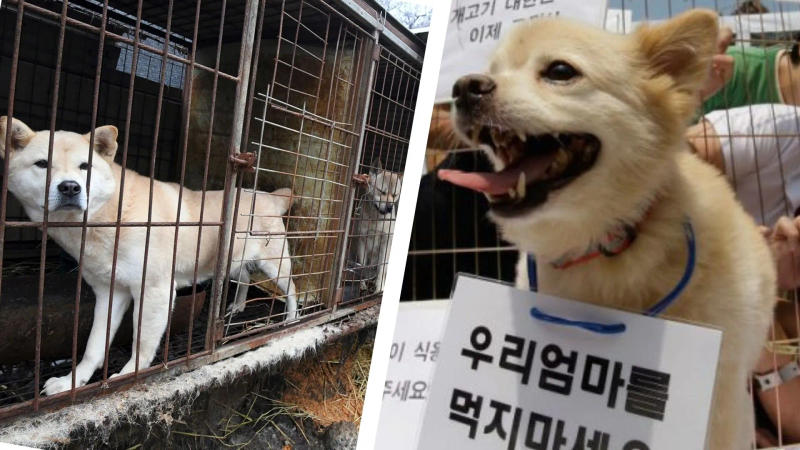Published 13:30 IST, January 9th 2024
No More Dog Meat for South Korea: Parl Passes bill Outlawing Consumption by 2027
The law obtained unanimous approval from 208 National Assembly members, with no opposing votes.

Seoul: South Korea's parliament has approved an important law that prohibits the consumption of dog meat. According to reports, the legislation was passed by the country’s parliament on Tuesday, January 9, outlawing the centuries-old practice of dog meat consumption.

The law received unanimous approval from 208 members in the National Assembly, with no opposing votes. While it awaits final approval from The Cabinet Council and President Yoon Suk Yeo, it is anticipated to become a formal law as Yoon's government supports the ban.
This new regulation will effectively halt the killing, breeding, selling, or trading of dog meat for consumption starting in 2027. Moreover, individuals found in violation of this law could face imprisonment for 2-3 years. While the consumption of dog meat itself won't be illegal, those found guilty of butchering dogs could face prison time, and those involved in raising or selling dogs for meat could serve a maximum of two years. This legislation, effective in three years, will provide a transition period for affected farmers and restaurant owners to find alternative livelihoods, requiring them to submit closure plans to local authorities.
President Yoon Suk Yeol and the First Lady, staunch advocates against the practice, own six dogs and have repeatedly called for the ban on dog meat. Despite opposition from some dog farmers arguing for a natural phase-out due to declining popularity among younger generations, animal rights groups celebrated the ban's passage.
The ban had previously encountered significant resistance in the country from farmers and individuals involved in the small dog meat business. However, a recent survey, as per AP reports, has revealed that most South Koreans no longer consume dog meat.
When South Korean Farmers Rally Against Proposed Dog Meat Ban in Seoul
On November last year, around 200 South Korean farmers protested in Seoul, opposing the government's plan to ban dog breeding for human consumption. These farmers, who were transporting dogs in cages with the intention of releasing them during the rally, were stopped by the police.
President Yoon Suk Yeol's ruling party introduced a bill to end dog breeding for consumption, offering financial aid for affected businesses within three years. They aim to resolve the controversy surrounding dog meat consumption, receiving support from both the opposition party and the public. Currently, over 6 million South Korean households keep dogs as pets, while a Gallup Korea poll showed that nearly two-thirds of respondents oppose eating dog meat.
Ju Yeong-bong, representing the industry, led the rally, criticising politicians for deciding what people should eat and expressed dismay at being excluded from discussions. Farmers clashed with police, resulting in the detention of three protesters, including Ju.
Despite the declining popularity of dog meat, farmers and restaurant owners advocating for its legality accuse First Lady Kim, a staunch critic of dog meat consumption, of influencing the ban.
South Korean Youth's Declining Interest in Dog Meat
The declining interest among the youth in consuming dog meat has been the most important factor driving South Korea's significant shift away from this practice. Recent statistics reveal a decline in the consumption of dog meat, with only 8% of individuals having tried it in the past year, compared to 27% in 2015. Additionally, less than a fifth of those surveyed expressed support for consuming this meat.
Despite South Korea boasting approximately 1,600 dog meat restaurants and 1,150 dog farms in 2023, the traditional dish, "boshintang," once considered a delicacy among older generations, is no longer appealing to younger demographics. This shift in preferences aligns with changing cultural attitudes, notably among the youth, against the consumption of dog meat.
Updated 13:53 IST, January 9th 2024




